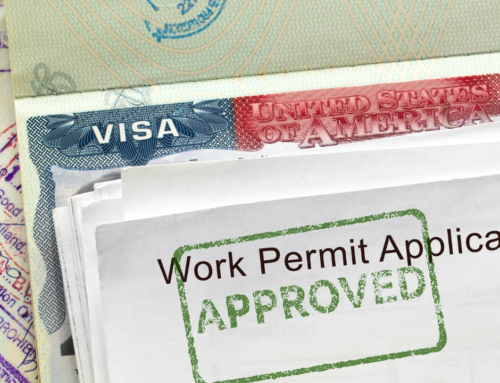On August 23, the U.S. Court of Appeals for the Fifth Circuit delivered its long-awaited decision in Restaurant Law Center v. U.S. Department of Labor. The unanimous panel struck down the 2021 Final Rule issued by the U.S. Department of Labor (DOL), often referred to as the “80/20 Rule” or the “80/20/30 Rule”, which restricts when employers can use the tip credit for tipped employees under the Fair Labor Standards Act (FLSA). The court found the rule to be both inconsistent with the relevant statutory text and arbitrary, leading to its nationwide vacatur.
Background: Tip Credit and the 80/20 Rule
The FLSA allows employers to count a portion of tipped employees’ earnings toward satisfying minimum wage requirements, provided the employee regularly earns more than $30 a month in tips. This framework has been largely unchanged since 1966, and employers can pay as low as $2.13 per hour as long as tips make up the difference to meet the federal minimum wage.
The concept of the 80/20 rule first surfaced in the DOL’s internal Field Operations Handbook in 1988. It arose from a series of DOL opinion letters in the late 1970s and 1980s, which sought to clarify how employers could apply the tip credit when employees performed both tipped and non-tipped duties. The DOL categorized tasks into three groups: (1) direct tip-producing work, like taking customer orders; (2) work related to tip-producing work, like refilling salt and pepper shakers; and (3) unrelated work, like cleaning restrooms. The 80/20 rule stipulated that an employer could not take a tip credit if an employee spent more than 20% of their workweek on non-tip-producing activities.
This rule remained largely under the radar until 2007, when a federal district court in Missouri relied on it in a ruling that allowed a lawsuit against a restaurant to proceed. The case attracted widespread attention, and the 80/20 rule quickly became a point of contention in the restaurant and hospitality industries.
Litigation and the Fifth Circuit’s Decision
The 2021 Final Rule from the DOL revived the 80/20 concept, adding a new layer of complexity by introducing a 30-minute continuous time limit on non-tip-producing work. This became known as the 80/20/30 Rule. Almost immediately, the Restaurant Law Center and the Texas Restaurant Association filed suit, arguing that the rule conflicted with the FLSA and was arbitrary and capricious.
The case eventually reached the Fifth Circuit, which ruled that the DOL’s rule conflicted with the FLSA’s language. The court noted that the FLSA defines a “tipped employee” based on their occupation as a whole, not by individual tasks. The DOL’s rule, by focusing on granular distinctions between tip-producing and non-tip-producing tasks, improperly deviated from the statute. The court further found that the rule was arbitrary, drawing unnecessary and unsupported distinctions between different types of work.
What This Means for Businesses
The Fifth Circuit’s ruling is a significant victory for employers in the restaurant and hospitality industries, which have been grappling with the complexities of the 80/20/30 Rule. By invalidating the DOL’s 2021 regulation, the court has eliminated the need for businesses to track every minute their tipped employees spend on different types of work.
Previously, under the 80/20/30 Rule, employers were required to meticulously monitor and document the amount of time that tipped employees spent on non-tip-producing activities, such as setting tables, refilling condiments, or performing other supporting duties. If an employee spent more than 20% of their workweek on such activities or exceeded 30 minutes of continuous non-tip-producing work, the employer could no longer claim the tip credit and would be required to pay the full minimum wage for those hours. This created administrative headaches and increased labor costs for businesses, especially in industries where employees often juggle multiple tasks.
With the rule now vacated, employers no longer need to worry about these stringent restrictions at the federal level. This means fewer compliance hurdles and less risk of facing litigation over claims of improper wage payments due to non-tipped work. Many businesses will welcome this development as it simplifies their payroll management and alleviates concerns about costly lawsuits. Companies can focus more on managing their operations efficiently rather than constantly monitoring how employees split their time between tipped and non-tipped activities.
However, businesses should remain vigilant. While the federal rule is now invalid, some states and localities may still enforce their own versions of the 80/20 rule or impose other regulations regarding tipped employees. Employers must ensure they stay compliant with all applicable state and local laws, which may differ significantly from federal standards.
Additionally, there’s a possibility that the Department of Labor may seek further review of this decision, either through an en banc rehearing or an appeal to the U.S. Supreme Court. While this is unlikely to result in a quick reinstatement of the rule, businesses should keep an eye on any developments in this area of law, as further litigation could potentially reintroduce similar restrictions in the future.
Beyond compliance, businesses should consider how this ruling may impact their internal policies and employee relations. Without the need to comply with the 80/20/30 Rule, employers now have more flexibility in assigning duties to tipped employees. They can more freely delegate non-tipped tasks without fear of violating wage laws. However, businesses should still ensure that employees feel valued and fairly compensated for their work. If non-tipped duties become a significant portion of an employee’s responsibilities, employers may want to reevaluate their wage structure to ensure it reflects the nature of the work being performed. Fair treatment of employees will help prevent dissatisfaction, high turnover, or potential legal challenges, even if those challenges no longer hinge on federal wage laws.
Not Legal Advice
While we believe this information to be accurate, it should not be used as legal advice. It’s the employer’s responsibility to consult attorneys and solicit legal advice to determine the most appropriate solution for their business circumstances in the jurisdictions within which they operate.




